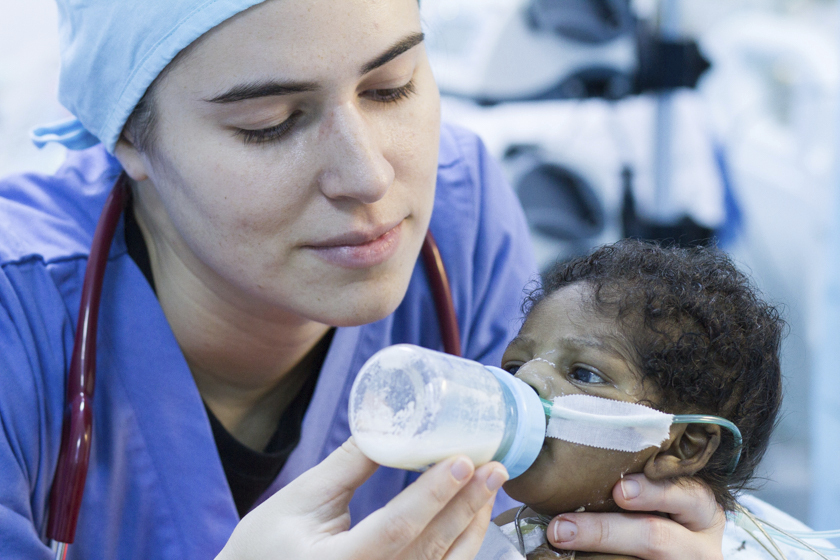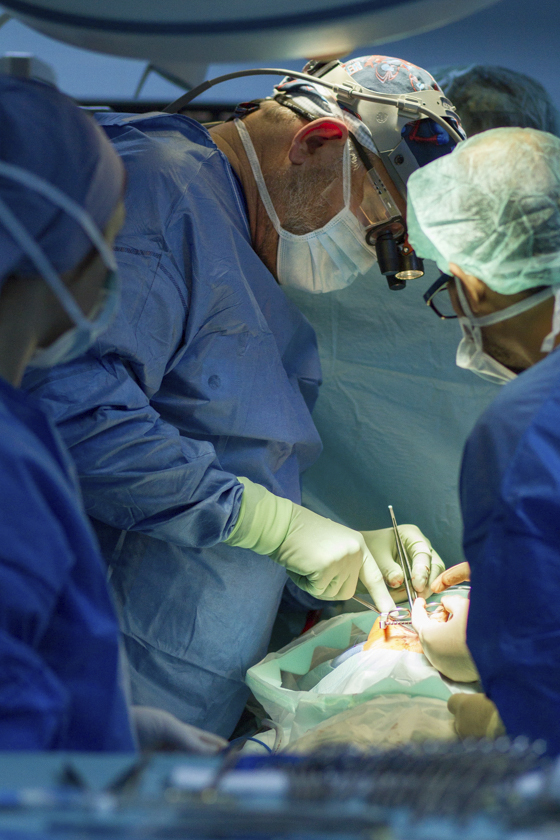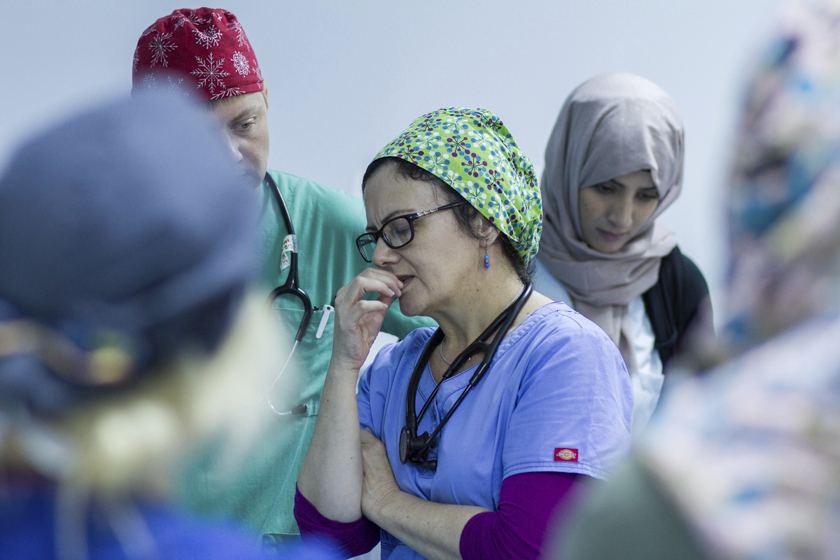From the moment a trip begins, precise preparations for every operation begin: instruments are sterilized, equipment is checked, hands are washed, surgical gowns and masks are secured, lights are adjusted—each in a very particular way.


When the patient is ready, surgeons open the chest, assess the exact nature of every heart defect, make each delicate stitch to repair the heart, all the while being aware of any subtle changes in the patient’s condition, and finally closing up the chest to cover a repaired heart. Two surgeons scrub in for each surgery—it takes more than one set of hands to perform a successful operation.
It’s easy to think of heart surgeries as solo shows—a single surgeon the only player onstage.
In reality, heart surgeries are complicated choreographies, and everyone involved is essential.
Before any surgery takes place, the cardiologist sees the patient, diagnoses any heart defects, and recommends candidates for surgery.
Inside the operating room, the scrub nurse prepares patients, manages instruments, and maintain a scrupulously sterile environment for surgery. Anesthesiologists administer the fluids which keep patients asleep for just the right amount of time and keeps a close eye on levels. Perfusionists manage the heart-lung machine, and keep blood oxygenated during surgery. The blood bank manager ensures there is enough life-giving supplies at hand. And a biomedical engineer is always at the ready, keeping complicated machinery running smoothly.
In the Intensive Care Unit, critical-care doctors and nurses treat healing patients, continuously measuring heart rates and fluids. The respiratory therapist keeps lungs functioning well and helps to prevent complications like pneumonia. X-ray and lab technicians provide the evidence needed to fully manage care.




In the Step-down Unit, the last phase of in-hospital treatment, further monitoring takes place to manage patient wellness, and parents are trained how to best care for their children so they can go home as quickly as possible.
Behind the scenes, there are further layers, including those who clean the hospital, sterilize instruments, wash sheets, and more.
Skilled surgeons are essential to every operation, of course! Dr. Novick and our surgical staff brings tens of thousands of hours of training and experience to every operation. There is no surgery without surgeons!




But it’s also true that without cleaners, there is no surgery. Without sterilized instruments, there is no surgery. Without bagged blood and plane tickets and filled syringe pumps, there is no surgery.
In this complicated choreography, everyone is essential—including you! Without your generous donations, there is no surgery. You help to make all of this happen! Give today.


